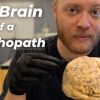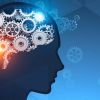-
 +14 +2
+14 +2Coping with OCD as a Teen: A View from the Inside
The distinctive experiences of OCD and its effective treatments.
-
 +16 +2
+16 +2What Is Writing Therapy? Tips, Benefits, and Prompts to Start
Gen Z and Millennials are turning to writing therapy as an effective and cost-friendly alternative to talk therapy. Here's what to know.
-
 +16 +4
+16 +4Psychedelic Assisted Therapy
John Oliver discusses psychedelic assisted therapy: its history, its potential, and what it has to do with A$AP Rocky’s relationship to rainbows.
-
 +26 +3
+26 +3Magic mushrooms, magical worlds: How VR and psychedelics are being combined in therapy
From private beaches and crackling bonfires to stars that hold the recordings of fleeting thoughts, virtual reality is being used in combination with psychedelic therapy.
-
 +17 +2
+17 +2Two "dark" personality traits help explain the link between childhood adversity and suicide risk
New research suggests that facing troubling conditions such as abuse or neglect during childhood is associated with the development of “dark” personality traits, which in turn is linked to heightened suicidality. The findings have been published in Personality and Individual Differences.
-
 +16 +3
+16 +3School wins legal battle to electric shock children to ‘correct behaviour’
The Judge Rotenberg Center for children with disabilities can continue to use electric shocks on its students as US Food and Drug Administration ban is overturned
-
 +14 +2
+14 +2Inside the Brain of a Psychopath
-
 +14 +2
+14 +2Unexpectedly reaching out to a friend is more appreciated than people assume, new study shows
People consistently underestimate how much others appreciate it when someone in their social circle unexpectedly reaches out to them, a new study has found. In fact, the more surprising the “reaching out” is, the more people tend to appreciate it.
-
 +10 +2
+10 +2Study highlights the high prevalence of interpersonal dysfunction associated with narcissism
Narcissists have impairment in social functioning, which can have profound effects on the people who love them or spend time with them. A study published in Personality and Mental Health sought to understand how people with narcissistic loved ones are affected. Results showed many negative outcomes, such as increased anxiety, depression, and somatic concerns.
-
 +16 +6
+16 +6Psychopathy May Not Be a Mental Disorder, But Totally Something Else According to Researchers
For more than half a century, the kinds of antisocial personality traits we think of as psychopathic – such as a lack of remorse, aggression, and disregard for the wellbeing of others – have been associated with mental illness.
-
 +14 +4
+14 +4Psychopathic tendencies appear to disrupt the link between authenticity and relationship well-being
According to a study published in Personality and Individual Differences, staying true to yourself in a relationship leads to the best outcomes, except among people who are high in psychopathy.
-
 +13 +1
+13 +1MASS PSYCHOSIS - How an Entire Population Becomes MENTALLY ILL
-
 +9 +1
+9 +1Is a Mass Psychosis the Greatest Threat to Humanity?
-
 +10 +2
+10 +2Perfectionistic cognitions appear to play a key role in clinical anxiety
A new study found that perfectionist thinking patterns contributed to posttraumatic stress disorder (PTSD) and generalized anxiety disorder (GAD) symptoms, over and above several known control variables. The findings were published in Cognitive Behaviour Therapy.
-
 +20 +3
+20 +3Depersonalisation: Why Do I Feel Empty and Numb?
Do you feel like the world around you is unreal? Do you feel as though you are watching your life go by without being in it? Do you struggle to know what you are feeling or cannot find the vocabulary for it?
-
 +12 +4
+12 +4Depression, Anxiety Three Times More Likely in People with Cannabis Use Disorder
Rates of comorbid major depressive disorder and generalized anxiety disorder are three times higher in people who have cannabis use disorder, a meta-analysis in the Journal of Affective Disorders has found.
-
 +18 +2
+18 +2The psychology of compulsive behaviour
How compulsions are different from addictions and habits
-
 +15 +3
+15 +3Dogmatic people seek less information even when uncertain
People who are dogmatic about their views seek less information and make less accurate judgements as a result, even on simple matters unrelated to politics, according to a study led by UCL and Max Planck Institute for Biological Cybernetics researchers. The researchers say their findings, published in PNAS, point to differences in thinking patterns that lead people to hold rigid opinions.
-
 +16 +2
+16 +2Narcissistic People Are More Likely To Take Part In Political Activities
By Emily Reynolds. But some aspects of narcissism are related to less political participation, complicating the picture.
-
 +11 +2
+11 +2New study explores the psychological predictors of extreme political attitudes
A study published in PLOS One suggests that political extremism — specifically, the endorsement of political correctness or white identitarian attitudes — ...
Submit a link
Start a discussion




















